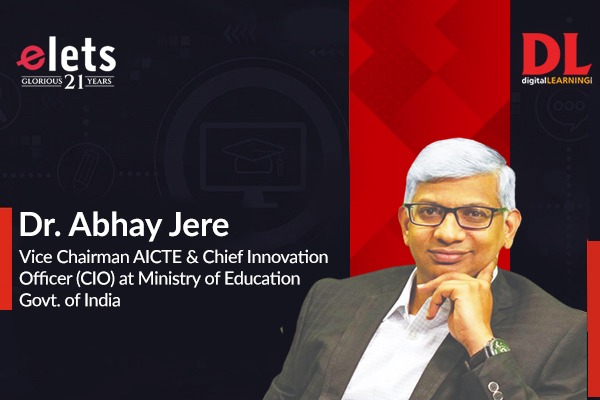
Dr. Abhay Jere, Vice Chairman of the All India Council for Technical Education (AICTE) and Chief Innovation Officer at the Ministry of Education, delivered an enlightening speech at the Fourth Elets Education Innovation Summit in Pune. This event centred around fostering educational advancements and provided a platform for discussing the future trajectory of India’s educational sector. Dr. Jere emphasised the importance of innovation and entrepreneurship within academic institutions, sharing key initiatives and valuable insights on transforming technical education.
Dr. Jere’s core message was clear – Innovation is not just a concept but a necessity for evolving educational systems to meet future demands.
The Journey of Innovation: Smart India Hackathon
In his speech, Dr. Jere recounted the inception and growth of the Smart India Hackathon, initiated in 2016 and officially launched in 2017. This nationwide event has become the world’s largest open innovation model, involving over 10 lakh students annually. The hackathon encourages students to solve real-world problems provided by various ministries and industries, fostering practical learning and creativity. “We took this movement to the people, making innovation accessible to every technical college in the country,” Dr. Jere emphasised, illustrating the widespread impact of this initiative.
Institution Innovation Council (IIC)
He also introduced the Institution Innovation Council (IIC) as a home-grown model aimed at comprehensive support for innovation in educational institutes. The IIC program has engaged 78,000 unique participants through 78 programs in the past year alone. This initiative has created a robust ecosystem for nurturing innovation within technical education. “Our goal is to create a seamless integration of innovation in technical education,” said Dr. Jere, highlighting how the program’s widespread impact fosters a culture of innovation in India’s educational landscape.
Training Faculty for Future-Ready Education
Recognising the pivotal role of educators in this transformation, Dr. Jere detailed the Innovation Ambassador Training Program. This program has trained about 15,000 faculty members nationwide, covering design thinking, pre-incubation, incubation, and startup registration modules that equip educators with the tools to nurture student innovation effectively. Dr Jere stressed, “Faculty members are key to fostering a culture of innovation. Their training ensures the right mentorship for students,” underscoring the importance of empowering educators to lead the charge in educational innovation.
Predictions and Future Trends in Education
Looking ahead, Dr. Jere forecasted significant changes in the education sector, driven by technological advancements like AI and the metaverse. He urged educational institutions to envision their future roles and emphasised the need for adaptive strategies to stay relevant. “Education will require new formats, and institutions must start planning for the next 25 years,” he predicted, encouraging a forward-thinking approach.
Dr. Jere’s address provided actionable insights for educational leaders. He advised institutions to explore converting student projects into viable ventures and ensure concrete technology outcomes from higher studies. He highlighted the importance of comprehensive hand-holding and mentorship, suggesting that institutions adopt design thinking workshops and innovation-focused curricula. These practical recommendations aim to enhance the effectiveness of educational programs and better prepare students for future challenges.
Views expressed by Dr Abhay Jere Vice Chairman AICTE & Chief Innovation Officer (CIO) at Ministry of Education, Govt. of India.
























